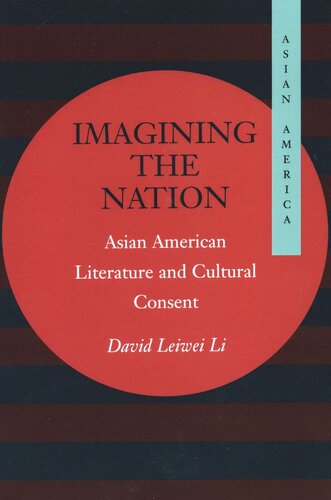

Most ebook files are in PDF format, so you can easily read them using various software such as Foxit Reader or directly on the Google Chrome browser.
Some ebook files are released by publishers in other formats such as .awz, .mobi, .epub, .fb2, etc. You may need to install specific software to read these formats on mobile/PC, such as Calibre.
Please read the tutorial at this link: https://ebookbell.com/faq
We offer FREE conversion to the popular formats you request; however, this may take some time. Therefore, right after payment, please email us, and we will try to provide the service as quickly as possible.
For some exceptional file formats or broken links (if any), please refrain from opening any disputes. Instead, email us first, and we will try to assist within a maximum of 6 hours.
EbookBell Team

0.0
0 reviewsSince the 1970's, when Maxine Hong Kingston began publishing her prize-winning books, we have seen an explosive growth in Asian American literature, a literature that has won both popular and critical acclaim. Literary anthologies and critical studies attest to a growing academic interest in the field. This book seeks to identify the forces behind this literary emergence and to explore both the unique place of Asian Americans in American culture and what that place says about the way Americanness is defined. The author is preoccupied with how the sense of the nation is disseminated through the practice of reading and writing, and he argues that Asian American literature is a productive discursive negotiation of the contemporary contradiction in American citizenship. By analyzing the textual strategies with which literary Asian America is represented, the book shows how the "fictive ethnicity" of the nation continues to exert its regulatory power and suggests how we can work toward a radical American democratic consent. Through nuanced readings of exemplary texts, the author delineates how Asian American literary production has become a site for the creation of Asian American subjects and community. The texts range from Kingston's enigmatic Tripmaster Monkey to the seductive cunning of Amy Tan's The Joy Luck Club; from Bharati Mukherjee's romantic Jasmine to the geocultural ambivalence of David Mura's Turning Japanese; and from the transvestic subversion of David Henry Hwang's M. Butterfly to the transpirational tropes of David Wong Louie's Pangs of Love. Imagining the Nation integrates a fine appreciation of the formal features of Asian American literature with the conflict and convergence among different reading communities and the dilemma of ethnic intellectuals caught in the process of their institutionalization. By articulating Asian American structures of feeling across the nexus of East and West, black and white, nation and diaspora, the book both sets out a new terrain for Asian American literary culture and significantly strengthens the multiculturalist challenge to the American canon.